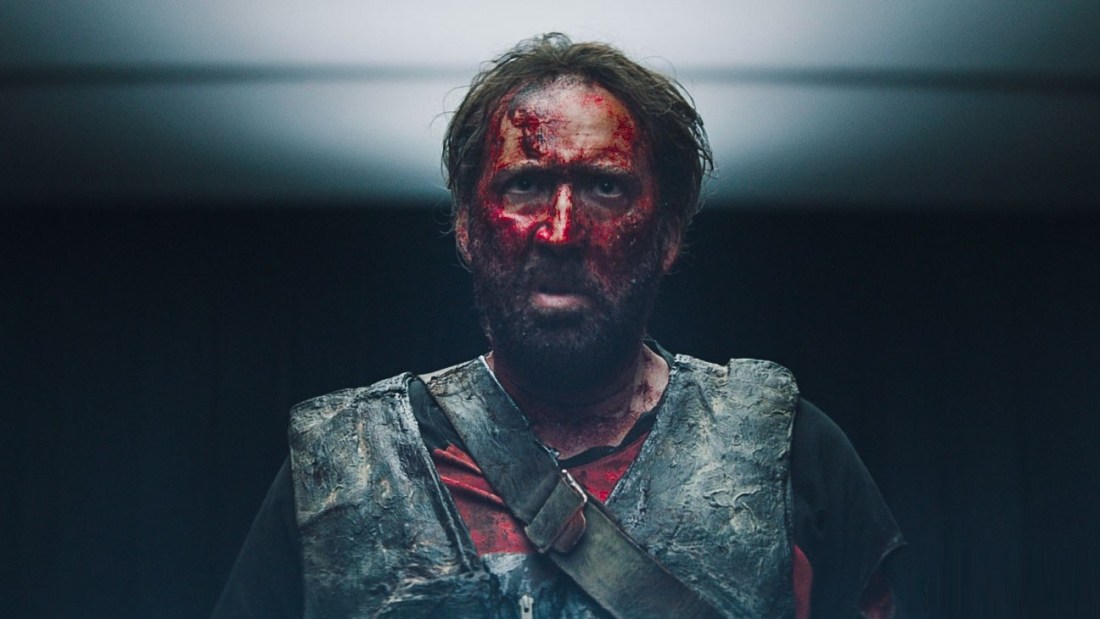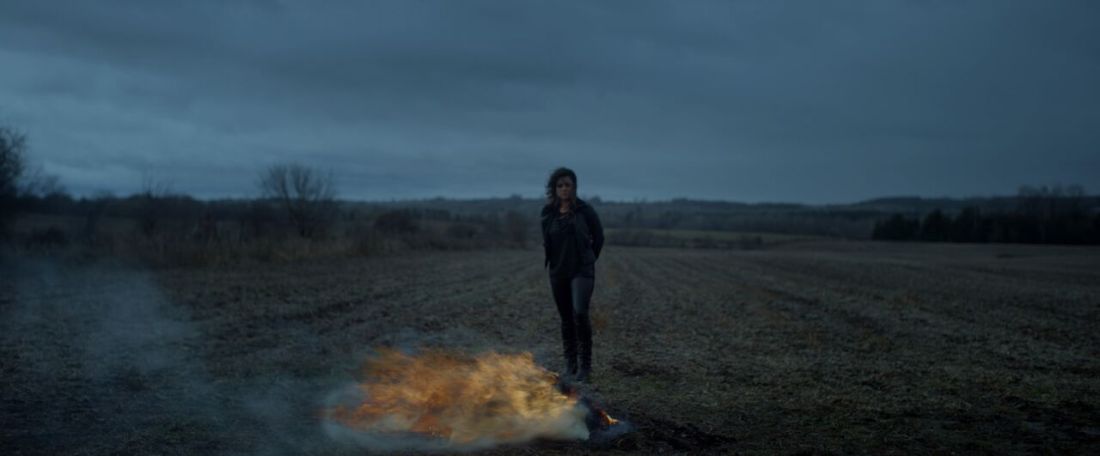Nicolas Cage is a good actor. This is an objective fact. I could point you to his 1995 Academy Award winning performance in Leaving Las Vegas, or the variety of great performances he’s put in over the years (Raising Arizona, Adaptation), or how he was able to transform himself into an action star in the late nineties with some legitimately great blockbusters (Face/Off, Con Air, The Rock). But you know and accept all of this deep in your heart. Sure, the list of bad Nicolas Cage movies is probably twice as long as the good ones, but, listen, I’m not going to be that chastises the guy for getting paid for his work., and I never really thought anything away from his good performances.
The thing about Nicolas Cage (and I swear I’m tying this with a serious face), is that he always brings the exact same 100% to every role. Good or bad, if you’re getting Cage, you’re always going to get every single bit of Cage, and that’s led to performances that, to put it lightly, some may deem to be over-the-top or ridiculous. Be it Moonstruck or The Croods, National Treasure or Knowing, you’re going to get the same Nicholas Cage every single time. His self-described acting style is “nouvea-shamanic” or “Western Kabuki.” That’s crazy, but it also makes him unique, and it’s a big part of why I tend seek out as many of his movies as possible.
I feel as if this preamble is necessary before talking about a movie like Mandy (screened at the 2018 Fantasia Film Festival), because, quite frankly, it might be the craziest Nicolas Cage movie yet. And I’m well-aware of how loaded a claim that may be, but take one look at the trailer and you’ll see what I mean. Mandy is a hazy, neon, fucking metal movie that is visceral, emotional, deliberately paced, insanely violent, and delightfully gory, and these are all things that a peak Cage performance slots into perfectly.
From director Panos Cosmatos (son of George, director of movies like Rambo and Tombstone) and set in the mysterious, mystical, slightly evil Shadow Mountains of the Mojave Desert in California, in the early eighties, Mandy is very simply a movie about a man named Red (Cage) who must avenge his girlfriend, the titular Mandy (Andrea Riseborough), after she is captured by a cult led by the charismatic Jeremiah (Linus Roache). It’s a simple, familiar premise that, outside of the existence of relatively unexplained supernatural elements throughout the course of the film, plays out in a relatively straightforward fashion. The first act of the movie is all about Mandy, as the film digs deep into her and Red’s relationship, why it works, how much they love each other and why they’re so happy living alone in the woods, on the outskirts of society. The second act introduces evil forces that quite easily and ferociously break their bond, sending Red on a downwards spiral, leading him into his quest for straight up, good old fashioned American revenge (the third act).
That probably isn’t far off from the plot of dozens of other films. What sets Mandy apart has to be seen to be believed, experienced rather than explained. The first half of the film is deliberately plodding, setting up the Nicolas Cage freakout scene to end all Nicolas Cage freakouts. The type of scene that could easily fit into that YouTube compilation we’ve all seen a hundred times. A scene that’s everything you want it to be and more, a tracking shot where Cage delivers the performance on his and only his terms, leading us into the final half of a movie that really follows through on every aspect of vengeance that it promises its lead character. There’s a scene where Red fashions a badass steel axe. Another where he visits his friend named Caruthers (Caruthers!!) played by Bill Duke to get back the crossbow he gave him when he decided to settle down and presumably stop murdering people with crossbows. There are wild supernatural creatures in insane armored outfits straight out of a death metal music video that Cage murders over the course of some elaborately choreographed fight scenes. There’s even a goddamn chainsaw fight. The first hour of Mandy may be slow and plodding almost to a fault, but the second hour delivers in every way imaginable. It’s a third act jam-packed with every cool old school action movie trope you could possibly think of, some of it going well beyond any recognizable border of sanity.
Mandy is a movie that is literally build for and around the Nicolas Cage freakout, a scene that presents itself (successfully, thanks to how seamlessly Cage’s performance blends with Cosmatos’ directing) as a pivotal moment, meant to sell you on Red’s grief and the rage he carries deep inside. The film never delves into Red’s past, but you can probably guess that no one moves to the woods to become a lumberjack that late in life if they’re not trying to escape some shadiness. They certainly don’t store crossbows at their friends house if they aren’t worried about what they might do with them. Red doesn’t need a backstory, because that one scene where he’s losing his shit in the bathroom is all you really need. It’s a ridiculous scene, don’t get me wrong, and if you see it with a big enough crowd, it will likely draw its fair share of snickering and laughing, but it still works, because it exists in a place where everything around it is equally ridiculous. It doesn’t really come out of nowhere – this isn’t Nicolas Cage screaming about bees or turning into a vampire – because it’s already been established that he’s grieving in and reacting to a world invested with evil Iron Maiden video extras and cult leaders who love The Carpenters and have elaborate rituals for revealing their penises. Cosmatos views the Nicolas Cage freakout through this hazy, neon lens with all of the sensibilities of the era that Mandy is set in, complete with beautiful, complimentary cinematography from Benjamin Loeb and the final score from the late great Johan Johansson.
Mandy works because it embraces the insanity of Nicolas Cage and builds around it. It’s a movie made specifically for him and what he’s capable of and wants to do. Cosmatos and his movie understand and embrace the kind of performance that Cage and only Cage can provide, and it makes them a match made in heaven. And if you like a good Nic Cage freakout, if you like gory, cathartic violence through straightforward, matter-of-fact storytelling, then Mandy is the movie for you, and it gets 7.5 Nicolas Cage Losing His Shit compilations out of 10.



